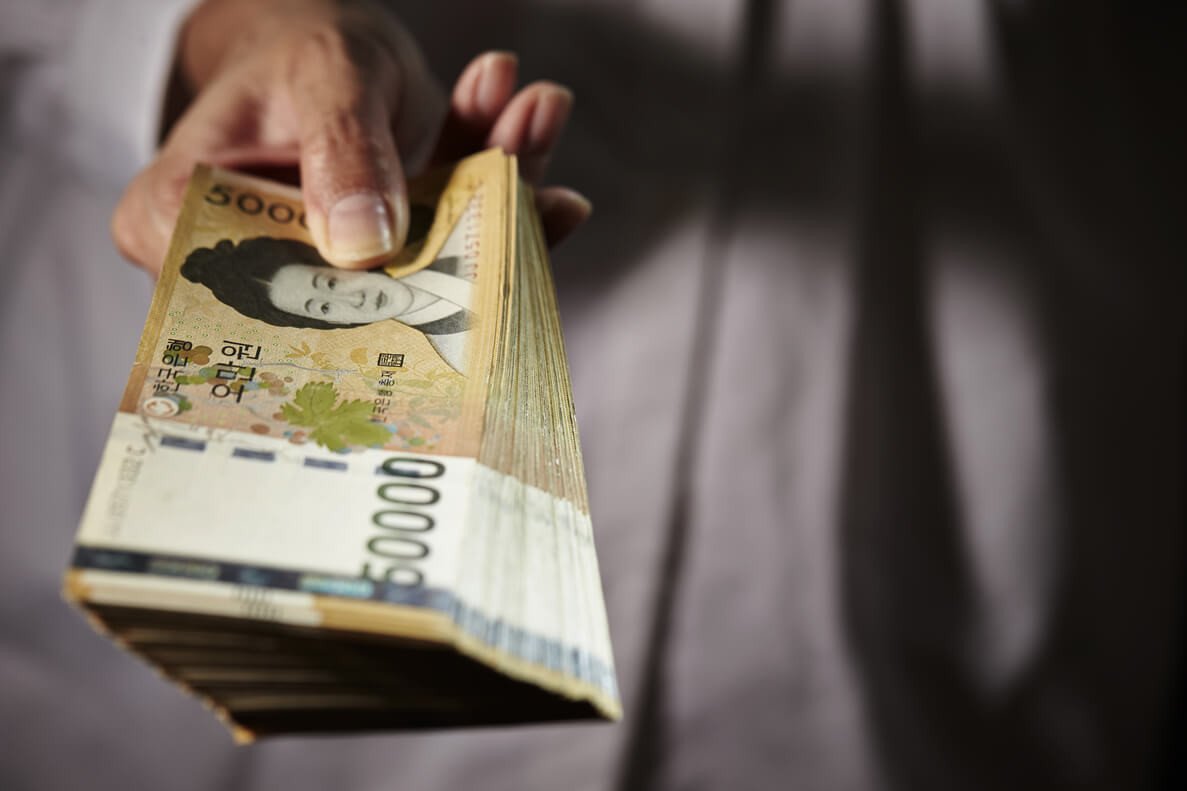South Korean Banks Earned USD 31M in Crypto Transaction Fees Last Year

Three South Korean banks earned USD 31.2m from their crypto exchange partnership deals in 2021, new data has revealed – suggesting that partnering with trading platforms could be paying off for the often-cautious domestic banking sector.
South Korean law requires crypto exchanges who offer fiat KRW trading pairs to partner with banks, who must provide platforms with fiat on/off ramps. They must also absorb the potential money laundering risks involved – as any violation in this regard is counted as a black mark against the bank.
However, a huge uptick in crypto trading early last year saw trading volumes skyrocket on most major platforms. As crypto customers are legally obliged to hold real name-verified bank accounts at their exchange of choice’s partner bank, this has also driven up customer account opening figures for all three banks.
The success has been almost overwhelming for the market leader Upbit and its partner bank, the neobank K-Bank. Upbit’s operator Dunamu has been officially classified as conglomerate-sized company by the markets regulator – the first crypto firm in the nation to be classified as such. Conglomerates in South Korea are subject to a set of restrictive regulations.
For K-Bank, the Upbit partnership brought in USD 22.76m last year, per data compiled by the regulatory Financial Supervisory Service by the MP Yoon Chang-hyeon, a member of the National Assembly’s Political Affairs Committee – and reported by MBC.
The figure represents an x30 rise from 2020, when K-Bank made just over USD 750,000 from its Upbit-related business.
The surge caused major disruption for the bank at the height of the most recent crypto rush in South Korea, with the bank thrown out of kilter with an “emergency in managing K-Bank’s loan-to-deposit ratio” in April last year. This in turn caused Upbit to temporarily freeze withdrawals and deposits as it waited for K-Bank to resolve the issue.
The income comes almost entirely from fiat deposit and withdrawal fees, which banks charge each time an exchange customer makes a fiat transaction.
Bithumb’s deal with NH Bank, meanwhile, earned the latter some USD 6m in 2021, while the same bank also earned over USD 2m from its Coinone partnership. Shinhan Bank – which now part-owns the Korbit exchange – made USD 660,000 from partnering with the crypto platform in 2021.
As reported, the K-Bank rival Kakao Bank is allegedly deep in talks with Coinone over a deal that could see the latter dump its current partner – NH – in favor of a new deal with the Kakao Group subsidiary.
A recent deal between the newer regional bank Jeonbuk Bank and the smaller crypto exchange Gopax has also opened the door for a number of smaller banking players to join the fray, hopeful that by doing so they will be able to generate new revenue streams and boost their customer base.
Members of new President Yoon Suk-yeol’s political team have previously stated that they expect to issue regulatory approval for two or three more crypto exchanges before the end of this year, meaning more banks would be needed to partner with the platforms.
___
Learn more:
– South Korea’s Biggest Neobank Reportedly on Verge of Crypto exchange Banking Deal
– Brace for More S Korean Altcoins as President-Elect Prepares to Ditch ICO Ban
– More Confidence By Banks Could Trigger ‘Second Wave’ Of Crypto Adoption – Expert Panel
– Brazil’s Biggest Neobank Makes Bitcoin Investment & Will Let Customers Buy BTC, Ethereum




